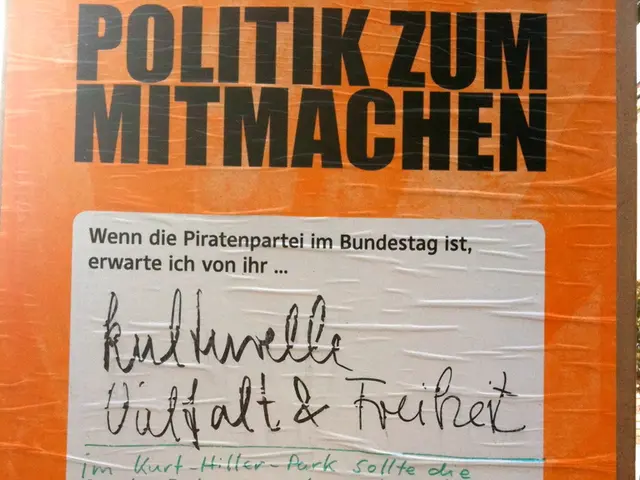Revised: Unpacking the shift in Turkey's juvenile justice system due to escalating public dissent
In recent years, Turkey has witnessed a growing debate over its juvenile justice system, with concerns about youth crime and the effectiveness of the current system at the forefront.
The Child Protection Law of 2005 introduced the term "child dragged into crime," prioritizing rehabilitation in the juvenile justice system. However, some argue that this focus on rehabilitation may be undermining the principle of individual responsibility for crime.
The Turkish legal system treats everyone under 18 as a child, with criminal responsibility beginning at age 12. Yet, statistics show that nearly a third of children aged 12 to 15 had prior records, and more than half of them understood the legal meaning of their actions. Security officials report high rates of reoffending among children brought in at a young age.
These concerns have been exacerbated by high-profile incidents, such as the death of 9-year-old Yusuf Taskin in a classroom altercation in Konya in May 2025, and the stabbing of 14-year-old Mattia Ahmet Minguzzi by two teenagers earlier this year, which led to widespread outrage.
In response, Justice Minister Yilmaz Tunc announced the preparation of a draft bill to change the law concerning children involved in crime. The bill aims to reduce sentencing discounts as the age of the offender increases, and considers removing the sentencing provisions for juvenile offenders that provide for reduced punishment as they grow older.
The debate is now focusing on ensuring that children, whether victims or perpetrators, are not failed by a system struggling to keep pace with the realities of modern youth crime. Proposals to refine terminology and approach include the use of "high-risk youth" as an alternative or complement to the existing "child dragged into crime" framework.
The Istanbul Bar Association's Children's Rights Center stresses that protecting minors is a collective responsibility. They argue that the need for stronger preventive and protective systems in schools and communities is being emphasized due to concerns about lenient sentencing potentially exposing minors to further criminal networks.
Without stronger preventive measures, lighter penalties risk failing both the offender and society. The ongoing debate in Turkey about whether the current juvenile justice system focuses too much on treating offenders as victims and not enough on accountability is a testament to this concern.
As the debate continues, it is clear that the focus is no longer only about how to punish or protect juvenile offenders, but also about developing a unique solution for Turkey that complies with universal and international norms while avoiding further harm to society. Over 200,000 incidents involving juveniles accused of committing a crime were recorded by security units in Turkey in the previous year, underscoring the urgency of finding a solution.
Read also:
- Impact of Alcohol on the Human Body: Nine Aspects of Health Alteration Due to Alcohol Consumption
- Understanding the Concept of Obesity
- Lu Shiow-yen's Challenging Position as Chair of the Chinese Nationalist Party (KMT) Under Scrutiny in Donovan's Analysis
- Tough choices on August 13, 2025 for those born under Aquarius? Consider the advantages and disadvantages to gain guidance







